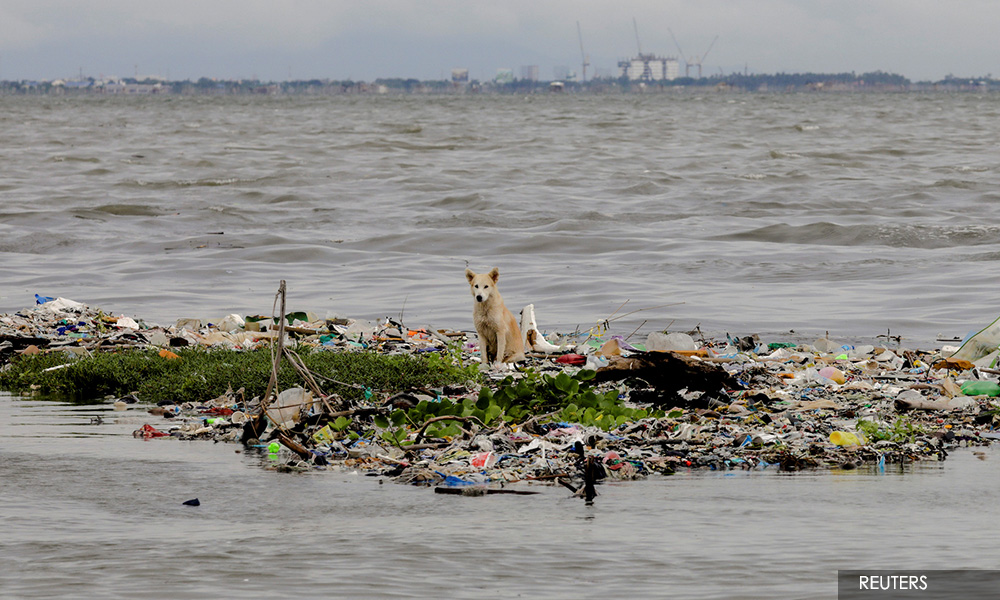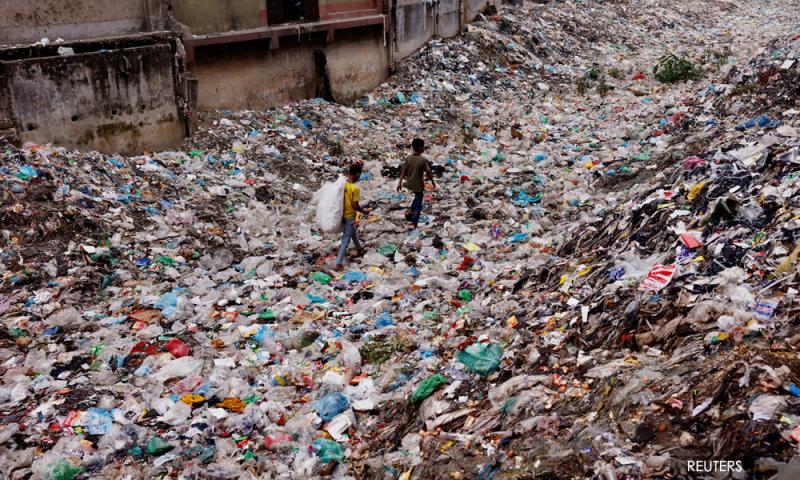Amid health fears, plastic makers pledge greater transparency over chemicals
Plastic makers need to be more transparent about the chemicals used in their products, a leading chemicals industry group has said, as concern mounts about the health impacts of the everyday material finding its way into the food chain and human bodies.
Tiny fragments of plastic have been found in blood samples, stools and placentas of unborn babies, recent studies have shown.
Scientists are trying to understand the health risks of this new phenomenon, but concerns range from the impact on organs to how some plastic additives might disrupt hormonal systems.
"We certainly recognise that, on the issue of additives, in particular, there is a need for more information and increased transparency," Stewart Harris, senior director for global plastics policy at the American Chemistry Council (ACC), told a panel at the Reuters NEXT conference.
A lack of clarity from the plastics industry over the chemical composition of some materials has presented one of the challenges to understanding risks, according to advocacy groups such as the International Pollutants Elimination Network.
The ACC's Harris said that a proposed United Nations treaty to tackle plastic wastes, due to be finalised by 2024, could provide global measures "to make sure that we do know what's going into different products and different packaging".

Speaking on the same panel, Japan's lead negotiator on the treaty, Hiroshi Ono, said more scientific research was needed to understand the health impacts of plastics and that it was not certain whether the treaty would address this issue, given other international conventions already regulate hazardous substances.
Jodie Roussell, public affairs lead for packaging and sustainability at Swiss consumer goods giant Nestle, told the panel she hoped the treaty would help establish global quality controls for plastic, especially recycled plastic.
Roussell said in lieu of such standards, Nestle has established its own quality controls and a blacklist for certain materials.
International standards would help with "levelling the playing field and ensuring a fair distribution of responsibility across the value chain," Roussell said.
- Reuters
RM12.50 / month
- Unlimited access to award-winning journalism
- Comment and share your opinions on all our articles
- Gift interesting stories to your friends
- Tax deductable

 Reuters
Reuters